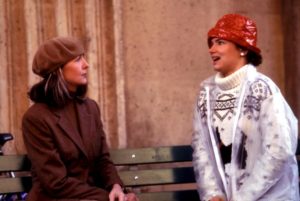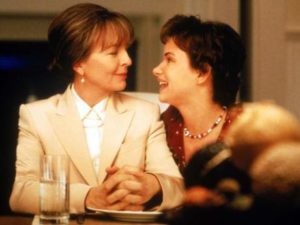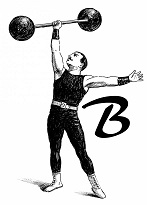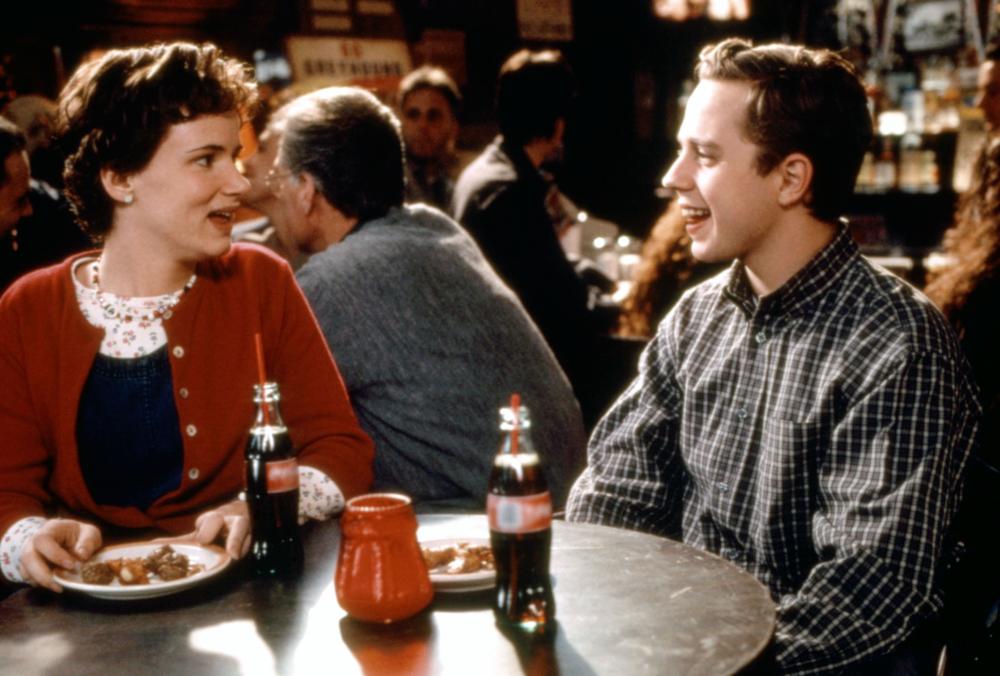“I want to live like animals, careless and free.” If a song ever embodied a movie, Savage Garden’s “The Animal Song” serves to define the actions and emotions of the main characters in the movie “The Other Sister”. Carla and Daniel, two mentally challenged young adults who, finding each other, learn to live life to the fullest while leading each other through it.
The strength and sweetness of “The Other Sister” can be found in the bravery and certainty that Carla, its main character, approaches life. Never down and out, she navigates her way through the film in the manner of someone who knows what she wants out of life and seeks it with a childlike abandon.
As a starting point for the movie, her intellectual challenges work to set the stage for a person who never looks back, only forward, and who seems to only see the bright side of life, unless trouble is literally shoved in her face, at which time she is able to face it bravely and move on.
Juliette Lewis does a good job as Carla, the mildly mentally retarded daughter of the Tate’s, a rich family that has had the struggle of Carla’s handicap and having to send her away to a private, special education school.
Mrs. Tate, (Diane Keaton), invokes responses on both ends of the spectrum from us, wanting to make up the lost years to Carla, “I’m going to make it up to that girl, Radley, I promise,” she says, and an inability to let Carla grow up and be on her own out of fear, and, perhaps, stubbornness.
 Tom Skerrit, as Mr. Tate, does a remarkably good job as a husband living with the past of a drinking problem and inability to be there for Carla as a child- but a man who is certainly there for her now. He champions first her desire to attend a Polytechnic School to get a certificate to be a Veterinarian’s Assistant and then to move into her own apartment for the first time in her life. He holds the family together while seemingly apologetic for mistakes he has made in the past.
Tom Skerrit, as Mr. Tate, does a remarkably good job as a husband living with the past of a drinking problem and inability to be there for Carla as a child- but a man who is certainly there for her now. He champions first her desire to attend a Polytechnic School to get a certificate to be a Veterinarian’s Assistant and then to move into her own apartment for the first time in her life. He holds the family together while seemingly apologetic for mistakes he has made in the past.
Supporting actors add important depth to “The Other Sister”. Two sisters line the cast: Heather (Sarah Paulson) and Caroline (Poppy Montgomery), do a good job at adding another layer to the family drama. Caroline is getting married to a fiancée, while Heather, who works in New York, is also seeking affirmation from her mother to acknowledge the fact that she is gay.
The sisters also act as a moral battleground, stating that Carla be treated as a normal person, and allowed to make to take the same mistakes or risks as ordinary people.
The crux of the story, and some of the most touching scenes in “The Other Sister” involve the budding romance between Carla and Daniel McMahon, a likewise mentally challenged boy she meets at her school, played by Giovanni Ribisi. Like Lewis, Ribisi does a wonderful job at portraying a young-adult navigating his way through life with a mental handicap. Neither Ribisi nor Lewis’ characters seem flat, or one-sided, but add a depth and innocence to Carla and Daniel that is striking to see.
Part of the charm of their involvement is the childlike innocence with which they treat one another- while, to the rest of the world around them their behavior is awkward or untimely, to each other it is markedly candid, and innocent in a way most adults are not able to achieve.
Carla becomes a best friend for Daniel, who, unlike her, does not have the support of a loving family. His distant father pays his rent, but is otherwise uninvolved, and all but cuts him off when he fails his class at the polytechnic for the umpteenth time. The only person in his life is Ernie, a handyman at his apartment, who acts as a father and friend but can’t give him what Carla does- someone who understands.
 While not as well adjusted as Carla, instead of using this as a plot arc, the film uses it to show the sweetness in Carla and their relationship. She is there for him when he needs her. This is best illustrated in two scenes, the first of which is a dance at the Polytechnic school where Carla finds out she has passed her subject, while Daniel has not. Upset, Daniel breaks down, and then embarrassed, runs from Carla. Against his pleas, Carla, never judgmental, or superior, consoles him by telling him that she learned to take easy subjects first, before you take hard ones in an attempt to cheer him up.
While not as well adjusted as Carla, instead of using this as a plot arc, the film uses it to show the sweetness in Carla and their relationship. She is there for him when he needs her. This is best illustrated in two scenes, the first of which is a dance at the Polytechnic school where Carla finds out she has passed her subject, while Daniel has not. Upset, Daniel breaks down, and then embarrassed, runs from Carla. Against his pleas, Carla, never judgmental, or superior, consoles him by telling him that she learned to take easy subjects first, before you take hard ones in an attempt to cheer him up.
A second scene is a fight with Carla and her mother, Carla’s mother adamant that Daniel is not right for her because “He is the first boy you’ve met and I think you can do better.” Carla’s heartfelt explanation as to why this is wrong, “I can’t do better because I’m not better,” is better understood to explain that she and Daniel are the same, and that she has accepted who she is and that, as she states, “I can’t be a painter or a tennis player…but I can love.”
Her point when Carla’s mother exclaims that Danny can barely take care of himself, let alone her is poignant. “We can take care of each other,” Carla claims in sweetness and loyalty to Daniel, and in a way ignorant that men should take care of women, and in a way that speaks of her and Daniel’s friendship, love, and desire to be there for each other in a pure, simplistic way that many of us will never realize.
Critics of “The Other Sister” cite its oversimplification as a downside, as well as its attempt to make mental retardation seem “cute.” But something else exists within this movie that is special- it is the careless innocence and bravery in which Carla treats the world, as though there is nothing in life that is too complicated as long as you follow your heart. The love between Carla and Danny is not clumsy but real- and follows an outline of two real, caring people that have found each other rather than recycled stereotypes of how couples within a relationship should act, so often promoted in media and modern life.
– by Mark Ziobro



1 Comment
Pingback: » Something’s Gotta Give (PG-13)